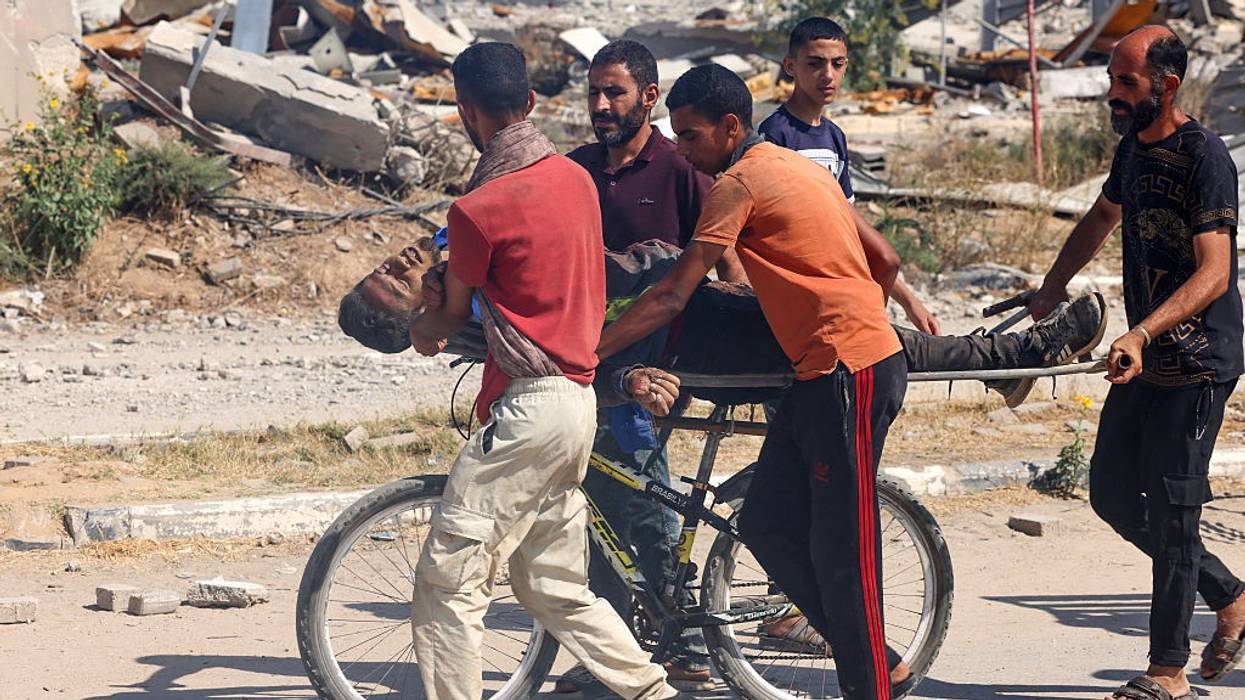'Laboratory of Cruelty': MSF Calls for Immediate Dismantling of Gaza Humanitarian Foundation
"In MSF's nearly 54 years of operations, rarely have we seen such levels of systematic violence against unarmed civilians."
The international medical aid group Médecins Sans Frontières on Thursday called for the immediate shuttering of the Israel-U.S.-backed Gaza Humanitarian Foundation, denouncing the distribution sites it operates as "essentially death traps."
Backing up its condemnation, MSF released a new analysis—titled, "This is not aid. This is orchestrated killing"—which "documents the horrors witnessed" by the group's staff over recent weeks and the deadly failures of GHF, a group conceived of by the Israeli government with the backing of the Trump administration and staffed by private U.S. contractors after the United Nations-run distribution infrastructure, powered by hundreds of cooperating NGOs, was eviscerated by Israel earlier this year.
"Children shot in the chest while reaching for food. People crushed or suffocated in stampedes. Entire crowds gunned down at distribution points," said MSF's general director Raquel Ayora in a statement. "In MSF's nearly 54 years of operations, rarely have we seen such levels of systematic violence against unarmed civilians."
"The GHF distribution sites masquerading as 'aid' have morphed into a laboratory of cruelty," says Ayora. "This must stop now."
According to the report:
MSF operates two primary healthcare centres in southern Gaza located in close proximity to the GHF distribution sites. Between 7 June and 24 July 2025, these health centres received 1,380 injured people, including 28 dead bodies from the GHF sites. This represents only a fraction of the total number of people killed and injured at the distribution sites. MSF's two health centres—due to their sheer proximity to the GHF sites—now place biweekly orders for body bags.
Over a seven-week period in June and July 2025, MSF staff treated 174 people for gunshot wounds originating from the GHF sites. The vast majority of those injured—96 percent—were young men. This reflects a grim survival strategy: families are sending the youngest and fittest to retrieve food.
The report includes testimony from Palestinians who survived the carnage they experienced at the GHF-run sites.
"We're being slaughtered," said Mohammed Riad Tabasi, a patient treated at the MSF Al-Mawasi clinic in southern Gaza. "I've been injured maybe 10 times. I saw it with my own eyes, about 20 corpses around me. All of them shot in the head, in the stomach."
Joining an international chorus condemning the U.S.-Israeli aid effort—which was criticized loudly by humanitarian aid experts from the moment of its conception—MSF called "for the immediate dismantling of the GHF scheme; the restoration of the U.N.-coordinated aid delivery mechanism" and called on governments worldwide—but "especially the United States"—as well as private donors to "suspend all financial and political support for the GHF, whose sites are essentially death traps."
